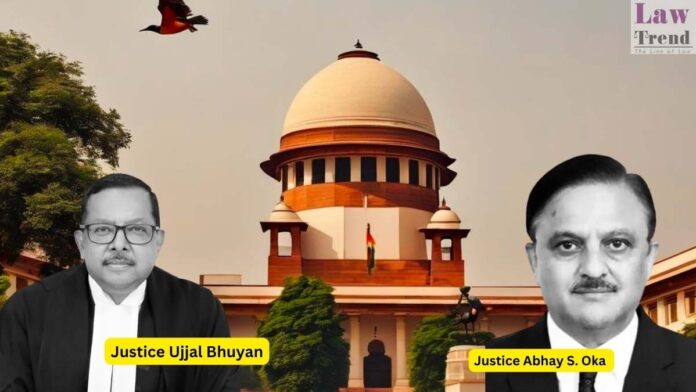The Supreme Court of India has ruled that there is no rigid requirement for convicts to serve half of their sentence before being granted bail at the appellate stage. The Court emphasized that if the merits of a case justify suspension of sentence and bail, an accused can be granted relief even before completing half
To Read More Please Subscribe to VIP Membership for Unlimited Access to All the Articles, Download Available Copies of Judgments/Order, Acess to Central/State Bare Acts, Advertisement Free Content, Access to More than 4000 Legal Drafts( Readymade Editable Formats of Suits, Petitions, Writs, Legal Notices, Divorce Petitions, 138 Notices, Bail Applications etc.) in Hindi and English.




